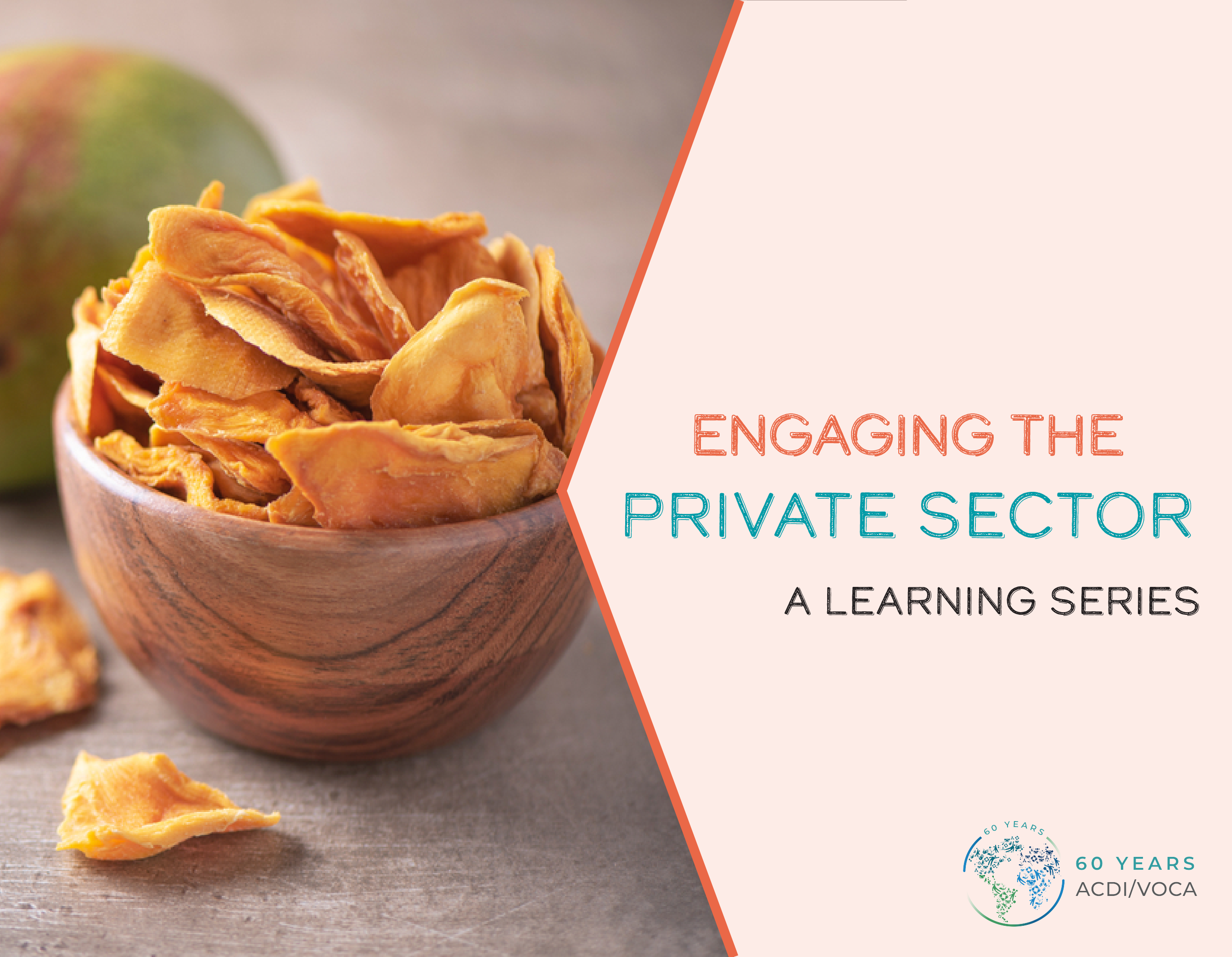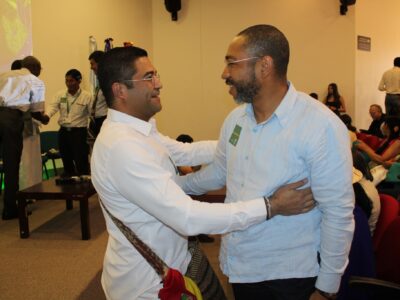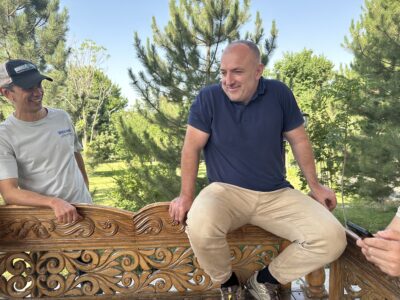
In January, ACDI/VOCA hosted a panel discussion on how the private sector is leading development as part of the Society for International Development’s Locally Led Development series. During the discussion, Mark Sevier, Senior Director of Private Sector Engagement at ACDI/VOCA, spoke with Affiong Williams, CEO and Founder of ReelFruit. ReelFruit is a fruit processing, packaging, and marketing company based in Nigeria that retails a range of dried fruit and nut snacks.
Continue reading for Williams’ insights into how the company is pursuing innovative, market-driven solutions to add value to Nigeria’s unique agricultural sector.

Q: What advice do you have for women-owned businesses seeking to scale up while also creating a development impact in their communities?
A: What I would share with other entrepreneurs in emerging markets is to not fight too many battles at once. For a business like ReelFruit, it was clear even in our early stages how much we needed to solve inefficiencies across value chains. It is tempting to spread yourself too thin, and I think that’s a quick route to not only burning out, but also failing to gain enough traction in one aspect of your business to attract investors. We took a very systemic approach—from the market to processing and farming — and that helped us build a story as well as the revenue we needed to win over investors.
We also raised smaller amounts and used that to achieve certain milestones to prove we were making the traction required. We aimed to be growth-focused but flexible in how we achieved that growth.
Networking and learning what has worked in other countries, particularly outside of the continent of Africa, is also important because that is how you bring in capital and best practices. The goal is to find people who care about the problems your business is trying to solve on both the commercial and development impact side.
Q: How have global development partners, such as ACDI/VOCA, helped you do something that you could not do on your own as a business?
A: The role of donors in my line of business is crucial because certain aspects of business in Nigeria will not attract private investment. For instance, the work of improving farming directly or working with farmers is not something you can attract private financing for. The success we have had is all because donors coming in and offering capital and technical expertise to help to develop a given part of the value chain.
And that is absolutely important because that part of the value chain may be the biggest limiting factor in how your commercial endeavor grows. Commercial endeavors are how you achieve a lot of the long-term sustainable impact, such as job creation, higher incomes, and affordable prices. For us, if we don’t have a thriving primary agricultural value chain, we are limited in our commercial and social returns. Donors can be a real catalyst in certain aspects of our value chain.
Q: What advice would you give to U.S.-based businesses wanting to expand into lower and middle-income countries and provide value but not just be another multinational moving in and taking opportunities away from local businesses?
A: What I see with a lot of multinational businesses are assumptions and biases that they come with of how things work in more developed markets. The best way to counter that is to have local partners and spend a lot of time learning the respective economies, how businesses work, and what people value. If you’re working in low-income countries, there are certain things people prioritize versus the more idealistic aims that businesses want to achieve. Being ruthlessly realistic about that helps with short- and medium-term survival, which you can build upon as you bring more best practices to the country.
Q: Can you summarize what elements for sustainability are crucial in your work with the private sector?
A: For us, number one is profitability. To support our social impact causes, we need to be profitable. So, we know that is crucial, especially in a market like ours where there is not a lot of funding available. We put that at the core of ensuring we remain sustainable and profitable so that our work can scale up.
Q: How has ReelFruit been able to overcome infrastructure barriers in accessing your suppliers? Have you engaged in public-private partnerships with government and donor communities to achieve both business and community goals?
A: We contend with infrastructure challenges and build them where they don’t exist. For example, we purchased all the cars that deliver our products across 860 stores in Nigeria because that infrastructure was not in place to make deliveries possible. It is really about the whole ecosystem, even down to the farming level. We hire our own staff to do the harvesting for the farmers to ensure we receive the quality of fruit we want.
We are there week in and week out checking the fruit and deciding when its ready to harvest. That is a failure of sorts of a lack of systems and infrastructure, so we play that role. And we also receive support from donors, especially on the farmer side. We’ve had great success with partnerships.
Comments




